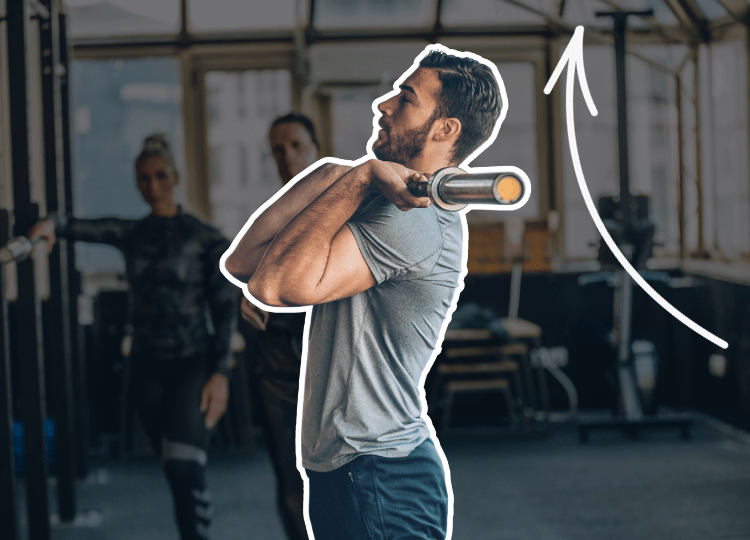We may earn a small commission on some links at no extra cost to you. Learn more.
If you’re looking to get certified as a Strength and Conditioning Coach, it’s more than likely you’ll come across SCC from ISSA during your research.
It’s one of the most popular strength and conditioning certifications globally… so we wanted to gain first-hand experience and go through the course for ourselves to better understand the pros, cons, how it compares with similar courses, and ultimately, who it is best suited to.
In this ISSA Strength and Conditioning review, we outline what the course covers, as well as what we like about the certification and things to consider.
In a hurry? Here’s the TL;DR – ISSA SCC is our top overall pick for strength and conditioning certifications. Get started from $53.27/month for 12 months.
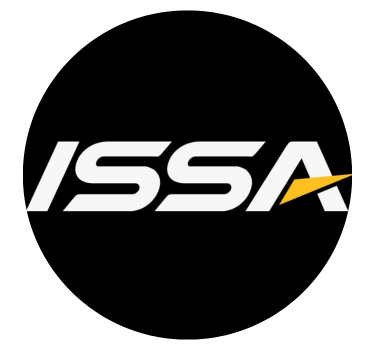
ISSA SCC
Our top overall pick for strength and conditioning certifications, 100% online, high exam pass rate, quality course material, open-book final exam.

ISSA SCC Scorecard – Updated 2023
- Career Development – 5/5
- Business Impact – 4.5/5
- Ease of Use – 4.4/5
- Support – 5/5
- Price – 4.5/5
- Overall Rating – 4.8/5
Learn more about our review scorecards as part of our editorial review guidelines.
ISSA Strength and Conditioning Certification – Overview
Getting certified in strength and conditioning is a great way for Personal Trainers, Physical Therapists, and other fitness professionals, to expand their knowledge and progress their careers.
Strength and conditioning coaching is all about optimizing performance, whether that’s for ambitious grassroots athletes or elite Olympians.
The learnings and knowledge gained from such a certification program can really separate fitness professionals… especially those looking to train at a high level.
What is the ISSA Strength and Conditioning Certificate?
ISSA (International Sports Sciences Association) is one of the leading suppliers of fitness certification programs. Their strength and conditioning coach certification is a relatively new certification, designed to give fitness professionals an accredited program focused on the optimization of athletic performance.
If you’re unfamiliar with ISSA, check out our ISSA review, which outlines what their flagship CPT certification is like.
It’s a broad certification that covers everything from biomechanics to nutrition. The course material split into 12 weeks… but you can go at your own pace.
What’s Included
- 586-page textbook
- Online exercise lab
- Online student forum
- Practice exam
- Free NCCPT accredited exam
- Unlimited educational support
- Free website (if you want one)
Want to Preview the Content?
If you scroll to the bottom of the ISSA Strength and Conditioning Coaching page, you can preview the first chapter by submitting your name, email and phone number.
What You’ll Learn
We’ve outlined the program modules and lessons below. As you can see, it’s a beast of a program, including 23 separate modules. Although this is a beginner-friendly certification, it really does provide a fantastic range of teachings.
INTRODUCTION TO STRENGTH AND CONDITIONING
- Health Benefits
- Goals of This Course
THE NERVOUS SYSTEM
- Functions of the Nervous System
- Components of the Nervous System
- Interactions of the CNS and the PNS
- Lower Motor Neurons and Motor Units
- Motor Commands
MUSCULAR SYSTEM
- Anatomical References—A Quick Glance
- Muscle Attachments
- Skeletal Muscle Structure and Function
- Muscle Actions
- The Roles of Muscle
- Muscle Fiber Types and Functional Characteristics
- Muscle Size Changes
- Muscle Growth Triggers
- Skeletal Muscle Groups
- Muscle Charts
- References
SKELETAL SYSTEM AND JOINT ACTIONS
- Skeletal Function
- Skeletal Structure
- Bone Functions
- Bone Structure
- Cartilage Structure and Function
- Ligament Structure and Function
- Joint Capsule

ISSA SCC
Our top overall pick for strength and conditioning certifications, 100% online, high exam pass rate, quality course material, open-book final exam.
CARDIO RESPIRATORY AND SUPPORT SYSTEMS
- The Respiratory System
- The Endocrine System
- The Digestive System
BIOENERGETICS
- Energy for Life
- Converting ATP into Energy
- The Energy Systems
- The Whole Picture
BIOMECHANICS
- Study of Biomechanics
- Mechanics
- Levers
- Wheel Axles and Pulleys
- Laws of Motion
- Friction
- Force
- Mechanical Loading
- Anatomical Reference Terms
- Anatomical Planes of Movement
- Joint Actions

GENERAL ASSESSMENTS
- Importance of Assessments
- Health Assessments
- Fitness Assessments
- Cardiorespiratory Assessments
PERFORMANCE ASSESSMENTS
- Assessment Selection
- Strength
- Maximal Strength
- Explosive Strength
- Reactive Strength
- Strength Endurance
- Speed and Agility
PRINCIPLES OF PROGRAM DESIGN
- Components of Fitness and Program Design
- An Individualized Approach
- Principles of Training Program Design
- Training Variables
- Programming
FLEXIBILITY
- Flexibility and Stretching
- Muscle and Connective Tissues
- Factors for Implementing Stretching to Enhance Flexibility
- Applying Flexibility Techniques
- Stretching Exercises
Did You Know…
PLYOMETRIC EXERCISES
- Phases of Plyometric Exercises
- Plyometrics for Performance Enhancement
- Progression of Plyometric Exercises
- Upper-Body Plyometric Exercises
- Lower-Body Plyometric Exercises
CORE EXERCISES
- Anatomy and Function of the Core
- Core Exercises in the Frontal Plane
- Core Exercises in the Sagittal Plane
- Core Exercises in the Transverse Plane
- Multiplanar Core Exercises
LOWER-BODY EXERCISES
- Lower-Body Anatomy
- Lower-Body Movement
- Technique
- Lower-Body Exercises
UPPER-BODY EXERCISES
- Upper-Body Anatomy
- Upper-Body Movement
- Technique
- Upper-Body Exercises
POWER AND OLYMPIC-STYLE WEIGHT LIFTING
- Overview of the Core Olympic Lifts and Power Training
- Principles of Sports Science
- Preparing for Power Exercises
- Power Exercises
PART A: RESISTANCE TRAINING SYSTEMS
- Fundamentals of Training Programming
- Warm-Up
- Training Parameters
- Training Microcycles: Weekly
- Strength and Conditioning Guidelines
- Loading Variations
- Deloading

PART B: APPLYING PERIODIZATION
- Preparation Phase Programming (Preseason)
- Competition Phase Programming (In Season)
CARDIORESPIRATORY PROGRAMMING
- Glycolytic and Antiglycolytic Training
- Components of Endurance
- Types of Endurance Training
- Training for Aerobic Power
- Cardio Programming for the Preparation Phase
- Cardio Programming for the Competition Phase
- Cardio Programming for Cyclic Athletes
RECOVERY AND INJURY PREVENTION
- Training and Recovery
- Stress
- Models
- Recovery Methods
- Recovery Adaptation Modalities
- Prevention and Care of Athletic Injuries
NUTRITION
- Scope of Practice
- Macronutrients
- Micronutrients
- High-Performance Diet
- Caloric Intake and Athlete Goals
- Hydration
- Common Supplementation
SUPPLEMENTATION
- Supplements for Athletic Purposes
- Nutritional Supplements
- Supplements to Increase Absolute Strength
- Supplements to Increase Speed and Reaction Response
- Supplements to Increase Endurance
- Supplements to Accelerate Recovery Time
- Supplements for Weight Loss/Fat Loss
- Banned Substances
PERFORMANCE PSYCHOLOGY
- Performance and Sport Psychology Overview
- Myths of Performance Psychology Training
- Psychological Skills Training (PST)
- Psychological Strategies and Applications
- Practical Considerations and Suggestions
PROFESSIONAL PRACTICE
- Roles of a Strength and Conditioning Coach
- Scope of Practice
- Preparing for a Job Interview
- Build a Network

ISSA SCC
Our top overall pick for strength and conditioning certifications, 100% online, high exam pass rate, quality course material, open-book final exam.
What We Like About ISSA Strength and Conditioning Certification
Training High Performance Athletes
If you’re a CPT or fitness coach, gaining a certification in strength and conditioning might be a requirement if you want to work with high performance athletes.
The inclusion of biomechanics, sports psychology, fitness assessments, and how to avoid/recover from injuries, allows you to build on the fundamentals from a CPT course and dive deeper into these sorts of topics.
Taking these concepts and applying them to regular CPT clients is also a great way to see quicker results for anyone looking to achieve specific fitness goals.
Sports Psychology
Modules that cover topics like sports psychology are what make ISSA SCC so useful for those wanting to pursue a career in sport and work with athletes.
It goes beyond just exercise and nutrition and allows fitness professionals to gain a better understanding of what drives motivation, fear and success.
Your role as a Strength and Conditioning Coach goes beyond just improving someone’s 1 rep max on the bench press… and instead, needs to include a more holistic view of their performance, including their psychology and attitude.
Beginner Friendly Certification
Especially when you compare ISSA Strength and Conditioning Coach certification to other strength and conditioning certifications, the general view from most past students is that ISSA’s certification is better for beginners.
The final exam is untimed and open-book, which will likely appeal to most students.
Unlike other S&C certifications, ISSA SCC doesn’t require a bachelor’s degree, making it a more inclusive and accessible introduction for a career in sport. This is something we really like, and means this strength and conditioning certification doesn’t come with such a financial burden of doing a university degree.
We also really like the use of videos that help provide key takeaways for each module. This is ideal for visual learners.
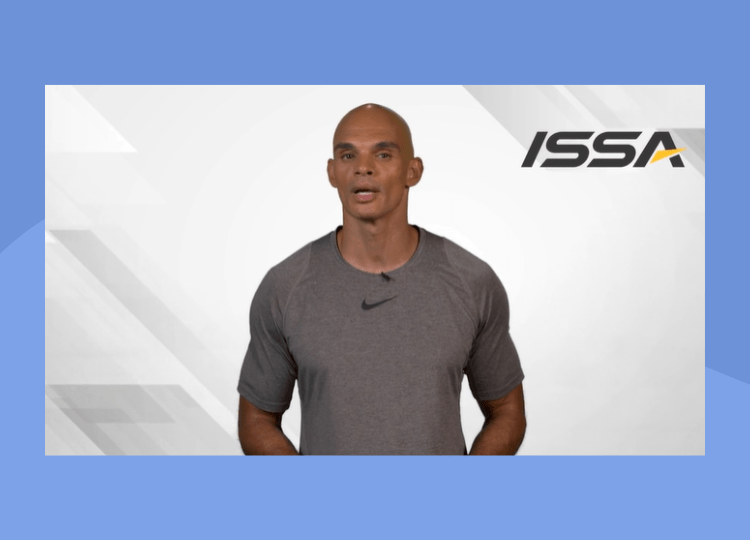
100% Online
100% online makes it very easy to get started and learn in your own time.
Whether you’re at school, or working 9-5, you can make ISSA Strength and Conditioning certification work around your schedule… which ultimately is going to help increase the chance of you passing the exam.
Not all strength and conditioning certifications are online, so if this is important, it’s something to bear in mind when looking at alternatives.
Boost Career Prospects
Whether you want to train elite athletes, or just work with local clients in the gym, being certified in Strength and Conditioning is going to help you stand out.
As it’s based on performance, it’s going to equip you with knowledge needed to improve someone’s fitness, whatever their level.

Program Design
Another useful skill you’ll gain from ISSA Strength and Conditioning certification is the ability to create and craft exercise programs.
This is an incredibly important skill to master if you want to work at the top level of fitness and can help you put your knowledge into practice by tailoring exercise programs to specific requirements and needs.
Module Quizzes
Something that is synonymous with all ISSA certifications is the inclusion of quizzes after each module.
This is a great way to test your knowledge and see if you’re on track to pass the final exam.
If you’re struggling with any module quiz, you can focus on those topics or even reach out to support for extra help.
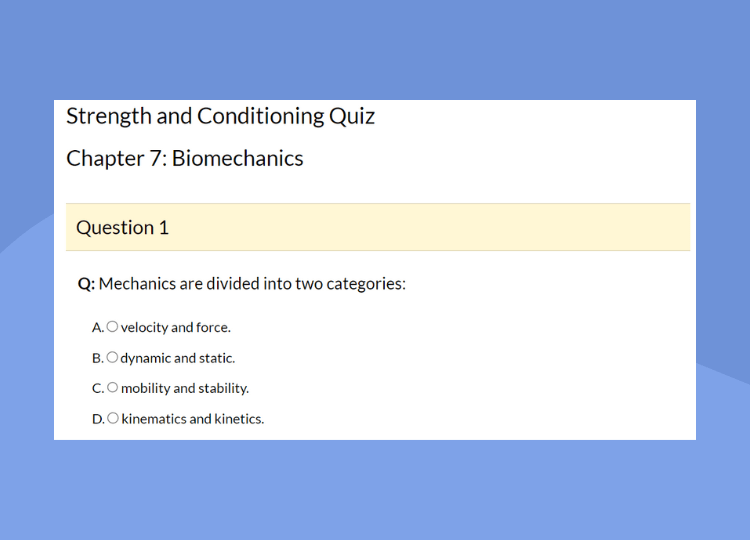
Strength Fundamentals
We’re big believers in the value of strength training… whatever your fitness level.
It’s a fundamental pillar to both athletic performance and healthy living, so getting to grips with the best techniques and recommendations for strength training is definitely a bonus.
ISSA’s course delves into the different approaches to strength training and how to apply this to different contexts, helping you or your clients reach their specific goals.
Fast Track Textbook
When you sign up for ISSA SCC, as well as gaining instant access to the full digital textbook, you also have instant access to a “Fast Track” textbook.
This is perfect for anyone with prior knowledge and wants a quicker learning experience.
By using the module quizzes, you can ensure you’re on track to pass the exam too.
(ISSA SCC doesn’t come with any audio content, but you can “listen” to PDFs via Adobe. Search online for “listen to PDF” and follow the instructions. Although this isn’t as user-friendly as downloading podcasts or files, some might find it a more enjoyable way to consume the content).
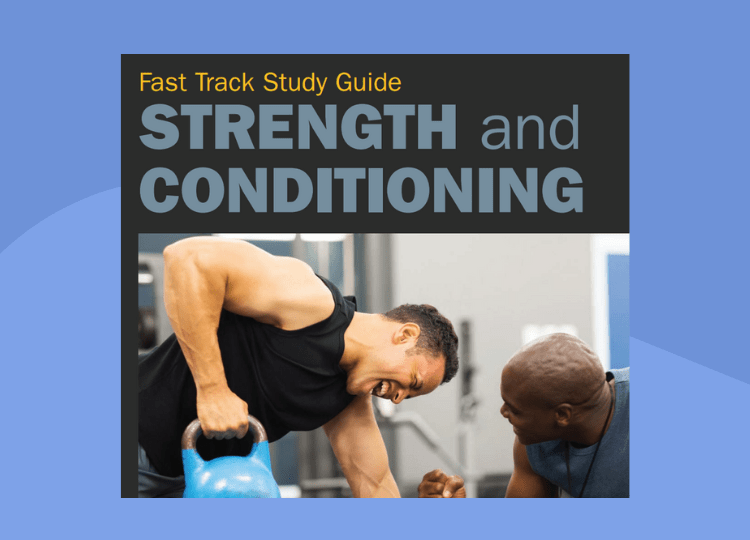
Things to Consider
We think ISSA Strength and Conditioning Coach certification is a great place to start for strength and conditioning certification… but if you’re serious about training at elite level, it probably won’t be the last strength and conditioning certification you earn.
Something like NSCA CSCS, which is a more intensive program, might be something you consider further down the line too. This is trickier than ISSA Strength and Conditioning certification, which is why we like ISSA as an entry level way to get started with strength and conditioning.
You may also want to get specific experience in certain sports if that’s where you want your career to go. For example, if you would love to be a strength and conditioning coach for a soccer team, implementing your knowledge within a soccer environment is worthwhile to boost your career prospects.
If you’re curious about other ISSA additional certifications and CEUs, we recently reviewed ISSA Yoga Certification and ISSA Running Coach highlighting what this program is like.
If you sign up to ISSA’s Master Bundle, you can select 4 additional specialisms, so including strength and conditioning, as well as 3 others, would be an option.
Thinking About a Career in Fitness?
Who is ISSA Strength and Conditioning Certification Best Suited For?
Ultimately, we think ISSA strength and conditioning certification is best for personal trainers, Physical Therapists and other fitness professionals who want to work with top performing clients (whether that’s locally or professionally).
A lot of the teachings from ISSA Strength and Conditioning Coach Certification develop on fundamental pillars of personal training and fitness coaching, so if you’re a complete newbie, you may want to consider doing a standard certification first.
Nutritionists may also consider taking such a course too, to help improve their knowledge of biomechanics and exercise in relation to diet and nutrition for athletes.
You also need to be 18 and have a valid CPR/AED certification.

Who is it Not Suited For?
As most clients could benefit from your increased knowledge from ISSA Strength and Conditioning Coach certification program, there aren’t many fitness professionals who wouldn’t benefit from it.
If you’re already qualified with a certification like NSCA CSCS, then you would probably already have all the knowledge required to lead strength and conditioning services effectively.
Similarly, if you already have a bachelor’s degree in sports science, you may prefer some of the more in-depth S&C courses.
Bottom Line
If you’re thinking about boosting your fitness career, becoming a specialist in strength and conditioning is genuinely a great route to go down.
It will give you the knowledge and expertise to create effective programming for your clients.
After completing a CPT, we would say a strength and conditioning certification is the perfect next step.
There are of course many strength and conditioning certifications out there… but for us, ISSA offer the best for beginners and entry level, as it is 100% online and the general feedback is that most students find it easier to pass than other S&C certifications.

ISSA SCC
Our top overall pick for strength and conditioning certifications, 100% online, high exam pass rate, quality course material, open-book final exam.
Related Article
MedBridge Promo Code – 40% Discount
